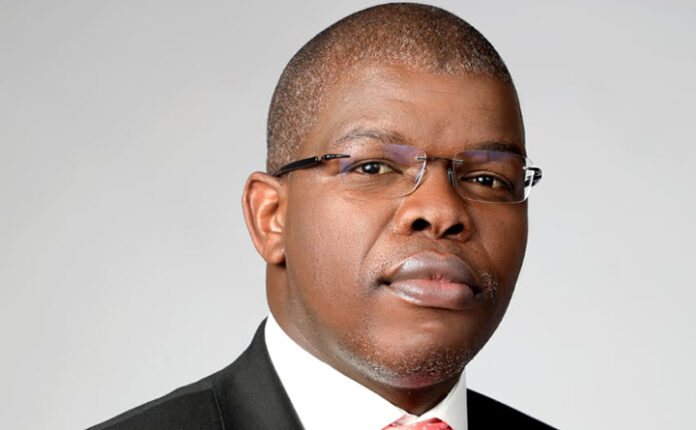Construction and Education Training Authority (Ceta) chief executive officer Melusi Shezi says the allegations of governance failure against him are the work of those seeking to get their hands on the R780-million annual revenue of the entity after he introduced tighter controls on procurement processes after taking over.
Shezi, who heads the Ceta, which is one of the many sector education and training uthorities (Setas), says his only sin was to improve the performance of the organisation against the wishes of rogue elements who want to loot.
When he took over in 2021, Ceta was under administration, performing at a disappointing 24%. However, after Shezi implemented several reforms, including recommending forensic reports, its targets shot up to 98%.
Shezi refuted the allegations of governance failures and interference in procurement processes against him, arguing that the improved performance of the entity backs him up.
“Obviously, where there is money, there is an interest, whether for good or for bad, there will always be noise about who is in charge of such monies and funds,” said Shezi during a candid interview with Sunday World Engage.
Shezi said he was well on course to take the Ceta back to its glory days before the Covid-19 pandemic, when it was collecting levies to the tune of R1-billion a year.
The revenue plummeted to a paltry R250-million at the height of Covid-19, however, since Shezi took over in 2021, it went up to R380-million. It then spiked to R400-million, and continued its upward trajectory to R600-million before hitting the impressive R780-million mark.
“We are projecting that by 2026, we should be able to go back to reach R1-billion in reve-nue,” he said.
Shezi said he was also steadfast in forging equality in an industry largely untransformed along the gender and racial lines.
“We have done so many initiatives to ensure that transformation happens, starting from the level of the learnerships, internships, short skills and artisans programmes.
“Our strategic focus as Ceta is to ensure that women, youth and people with disabilities and people and entities that operate in rural and township areas are given preference and priority,” said Shezi.
Shezi says his enemies are not pleased that he has been working hard to set Ceta on a path to its glory days. If anything, he added, he cannot be accused of introducing governance failures when he is the one who has been fighting to stop such failures.
The diagnostic report done by the administrator he found at the helm, he said, had revealed a total collapse of governance at Ceta.
“The committees of the boards were operating without delegations. Others took decisions that were supposed to have been taken by the
entire board, and they were never ratified.
“Some awarded entities where they were conflicted and had an interest in those entities. There was also a total collapse in our accreditation and certification processes in that there were no standard procedures, and there were delays in producing certificates for the learners that would have gone through programmes to the extent that some would have to wait three to five years to get their certificates.”
It was for this reason that when Shezi took over, he embarked on a mission to review the procurement process to close the loopholes.
“I started with procurement, where we reviewed the processes. We introduced internal controls that were required to make sure that there was segregation of duties, because when I started, the person who prepared the document for an RFQ (request for quotation) was the same person who received responses, and was also the person who decided to award it. No proper registers were kept.
“Then we introduced the rule that the person preparing for this thing to go out is not the one who will be receiving it. Second, we made it electronic. Submissions were made through a particular email, which only SCM (supply chain management) practitioners could send and respond to, while others could only view.
“And then we introduce that the RFQ responses, like the tenders, must have an evaluation team, which must include one SCM practitioner. So, we introduced that all tenders whose budget or actual awards is above R5-million must be subjected to a probity audit before the appointment letter is issued,” he continued.
“And with those improvements at the time, in my first six months, we did a property audit and internal audit. Internal audit started picking up issues because people were resisting.
“We needed to place certain people on suspension because forensic reports were saying they were responsible for corrupt activities in the SMC environment. And guess what they did? They retaliated and went out and said, ‘he’s corrupt, he’s interfering’.”
Meanwhile, Shezi, in a leaked Ceta internal memo, warned the staff about the widely criti-cised decision by Minister of Higher Education Buti Manamela to place Ceta under administration.
“The Ceta was not formally notified in advance or by the time of this communiqué as reflected in the gazette. So, do not panic at this stage.”
Shezi called for calm from Ceta staff members.
“It is worth noting that, as previously communicated, Ceta has achieved 98% of its targets as confirmed by the auditor-general during the current audit.
“It is also worth noting that there is no investigation report that has been made that concludes that there is financial maladmini-stration at Ceta.”
The DA and EFF have both questioned the legality of the decision by Manamela and threatened legal action, while Oupa Nkoane, who was announced as administrator, has rubbished the announcement, saying he only learnt about it from the news, and he was never approached to accept or decline appointment.



